Search
Remove Ads
Advertisement
Summary 
Loading AI-generated summary based on World History Encyclopedia articles ...
Search Results
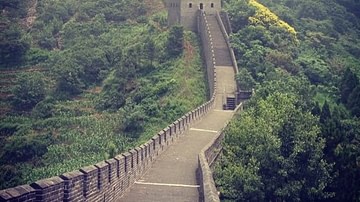
Definition
Great Wall of China
The Great Wall of China is a barrier fortification in northern China running west-to-east 13,171 miles (21,196 km) from the Jiayuguan Pass (in the west) to the Hushan Mountains in Liaoning Province in the east, ending at the Bohai Gulf. It...
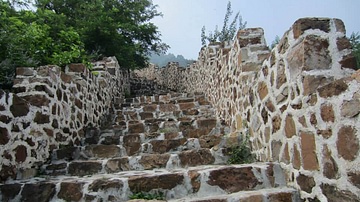
Image
Great Wall of China Stairs
Stairs at the Great Wall of China (built 221BCE - 1664CE).
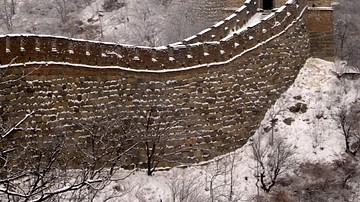
Definition
Ancient China
Ancient China produced what has become the oldest extant culture in the world. The name 'China' comes from the Sanskrit Cina (derived from the name of the Chinese Qin Dynasty, pronounced 'Chin') which was translated as 'Cin' by the Persians...
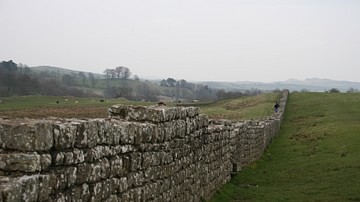
Definition
Wall
The English word 'wall' is derived from the Latin, vallus meaning 'a stake' or 'post' and designated the wood-stake and earth palisade which formed the outer edge of a fortification. The palisades were in use early on and are mentioned by...
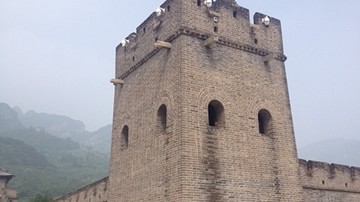
Image
Watchtower at the Great Wall of China
The Great Wall of China was begun during the Qin Dynasty (221-206 BCE) but little of that original wall is left. The wall that people recognize today is largely from the Ming Dynasty (1368-1662 CE) which built the distinctive watchtowers...

Image
The Great Wall of China in Snow
A section of the Great Wall of China just north of Beijing. The wall was begun in the 7th century BCE and significantly extended by the Ch'in emperor Qin Shi Huangdi from 220 to 210 BCE.
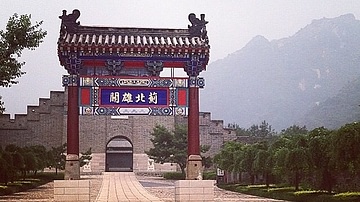
Image
Gate of the Great Wall of China
The Gate of the Great Wall of China, begun during the Qin Dynasty (221-206 BCE).

Image
The Great Wall of China
The Great Wall of China, built 221 BCE-1664 CE.

Image
Stone Stele & 1,000 Characters of Happiness, Great Wall of China
The stone stele stands in front of the wall of the One Thousand Characters of Happiness near the entrance to the Great Wall of China. The 1,000 Characters of Happiness is a fascinating display which reminds visitors of the many reasons to...
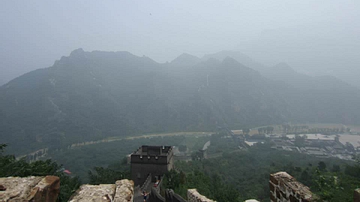
Image
View From the Top of the Great Wall of China
The Great Wall of China, begun during the Qin Dynasty (221-206 BCE), is one of the New Seven Wonders of the World but was not one of the ancient seven wonders, even though many people think so. Further, the Great Wall cannot be seen from...